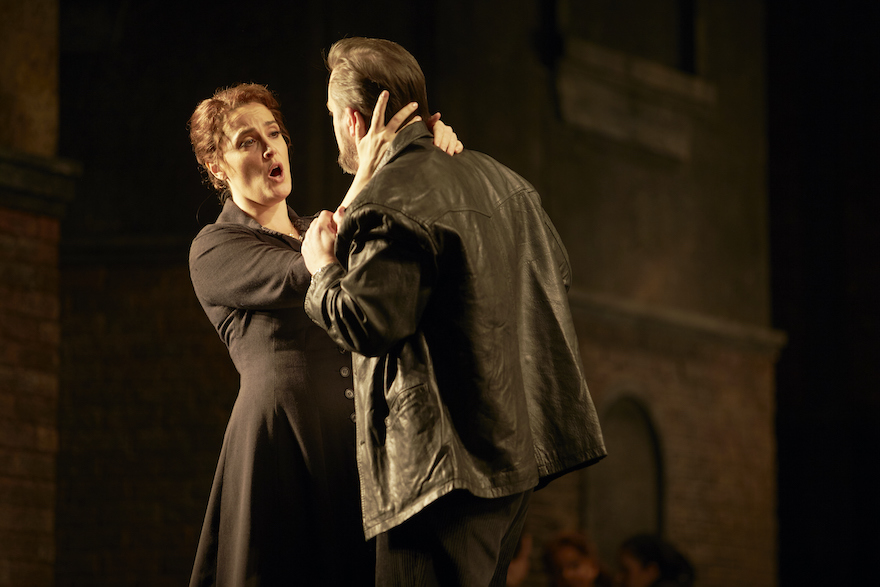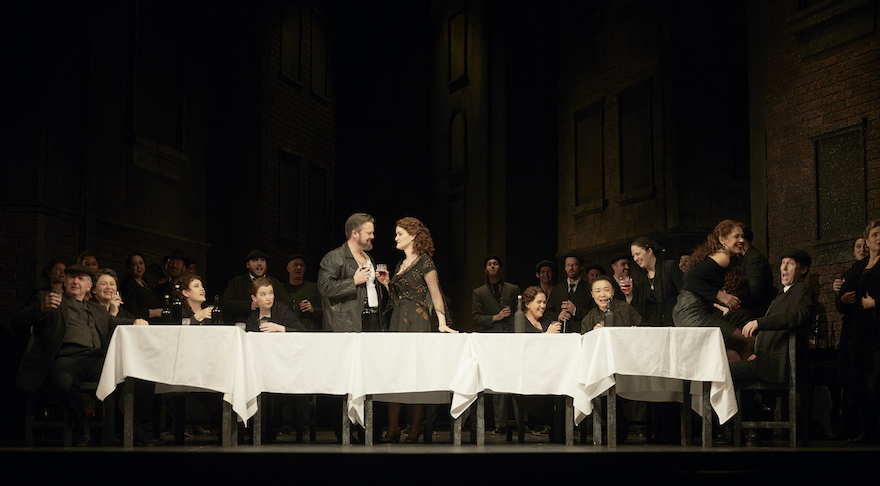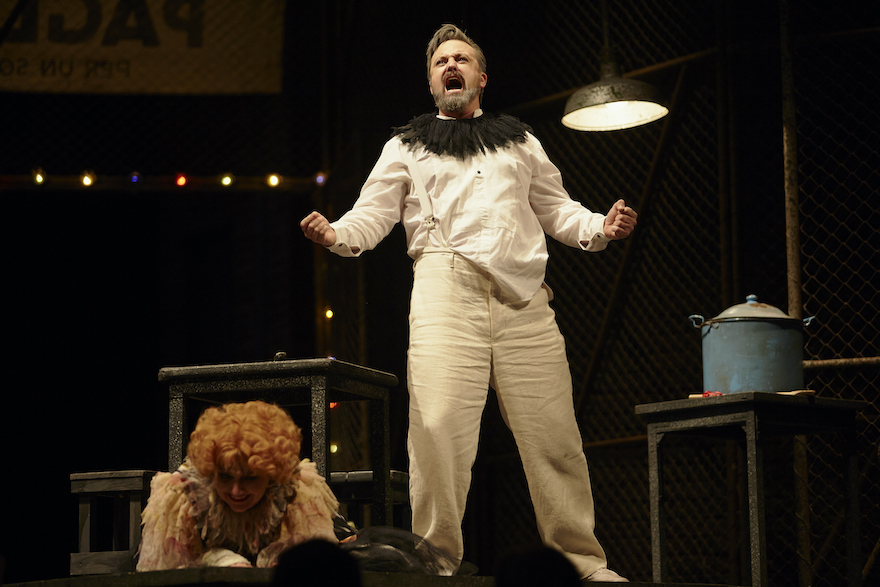Love, lust, betrayal and murder are all a part of “everyday life” in this highly successful double bill, writes Leon Levy.
Everyday tales of love and murder
21 July 2021
- Reading time • 6 minutesMusic
More like this
- Rewriting tradition with skill and charm
- Close encounter stirs the soul
- The great unknown
‘Cav & Pag’ (Cavalleria Rusticana and Pagliacci), West Australian Opera ·
His Majesty’s Theatre, 20 July 2021 ·
Mascagni and Leoncavallo were broadly contemporaneous figures and both composed prolifically. But each struck gold with just one work – their first to be produced – Cavalleria Rusticana and Pagliacci respectively.
Both works were in the very vanguard of the Verismo movement which aimed to reflect everyday life, in contrast to the subject matter that had been typical of opera up until then. It is a rather sad irony that neither composer was able to repeat this initial success. Even so, along with Puccini’s works in the same vein, their position in the repertoire has never wavered.
Each running for not much over an hour, the works rapidly established themselves as two halves of a double bill, despite a significant lack of contrast. Directed by Andrew Sinclair, both paint a fairly lurid picture of love, lust, betrayal and murder as part of “everyday life”.
The setting for Cavalleria Rusticana, with the village coming to life on Easter morning, is strikingly established, and so are the vocal credentials of Turiddu, the tenor-for-the-night Paul O’Neill, singing in the distance of his illicit love for Lola. Her cuckolded husband Alfio is played by baritone Simon Meadows with notable physical presence and voice. We have a menacing strongman, with obedient lackeys in tow, who Turiddu has crossed at his peril.

Running through the fast-developing drama is the anguish of Santuzza, Turiddu’s discarded lover, with a compelling Ashlyn Tymms in the role. In both her encounters with Mamma Lucia, Turiddu’s mother, and with Turiddu himself, Tymms conveys unremitting emotional intensity.
Nicole Youl’s Mamma Lucia captures perfectly the blend of a mother wishing to protect her family yet clearly discomforted by what has been revealed of her son. No less heartbreakingly projected are Santuzza’s pleas to Turiddu who, with his eye still firmly on Lola, coldly rejects them.
In the inevitable confrontation between Alfio and Turiddu, Meadows’ dangerous presence makes Turiddu’s pathetic appeal for his life so that he can take care of Santuzza clearly the act of cowardice that it is.
All the action takes place in set designer Shaun Gurton’s vivid village piazza. And all the big musical “moments” make their considerable effect – the “Easter Hymn”, the drinking song “Viva, il Vino Spumeggiante”, and “Un Bacio, Mamma”, Turiddu’s farewell to his mother, delivered considerable frisson.

Turning to Pagliacci, if the prologue, sung strongly by the returning Simon Meadows as the ungainly fool Tonio, is taken surprisingly comedically, it is effective in immediately establishing that we are now on to a new story. And the raising of the curtain to reveal a setting more Bronx than Sicily eliminates any lingering doubts.
With Paul O’Neill back as Canio, head of the troupe of players, and joined by Emma Matthews as Nedda, his wife, and Christopher Tonkin playing Silvio, Nedda’s lover, we have four accomplished artists to lead us to the tragic conclusion of this story of a man consumed by jealousy.
Meadows’ satisfyingly rich baritone proves to be a golden thread throughout, the fine voice an ironic comment on the loathsome nature of its possessor. Matthews, in a welcome return to the stage, is at her considerable best in all of her encounters, not least in the fatal scene with lover Silvio. Tonkin’s fine baritone is unmistakable, but perhaps his lanky frame, in contrast to that of Matthews, works somewhat against the sexual tension of their passionate encounter.

Tenor O’Neill had no trouble standing up to any audience members burdened by memories of recordings of “Vesti la Giubba” from Caruso onwards! He was fine throughout, both dramatically and vocally.
One small highlight of the production is the handling of the gathering crowd for the doomed performance, where everyone – not least the children – moves naturally to their places.
The double bill as a whole is an unqualified success, with some wonderful singing from soloists and choruses alike, highly effective sets and dramatic conviction. It almost goes without saying that the opera company – and therefore the audience – have the huge benefit of the West Australian Symphony Orchestra in the pit, this time under the always supportive baton of Christopher van Tuinen.
“Cav & Pag” continues on 22 and 24 July.
Pictured top are Matthew Lester as Beppe, Paul O’Neill as Canio, Emma Matthews as Nedda, Simon Meadows as Tonio in ‘Pagliacci’. Photo: James Rogers
Like what you're reading? Support Seesaw.





